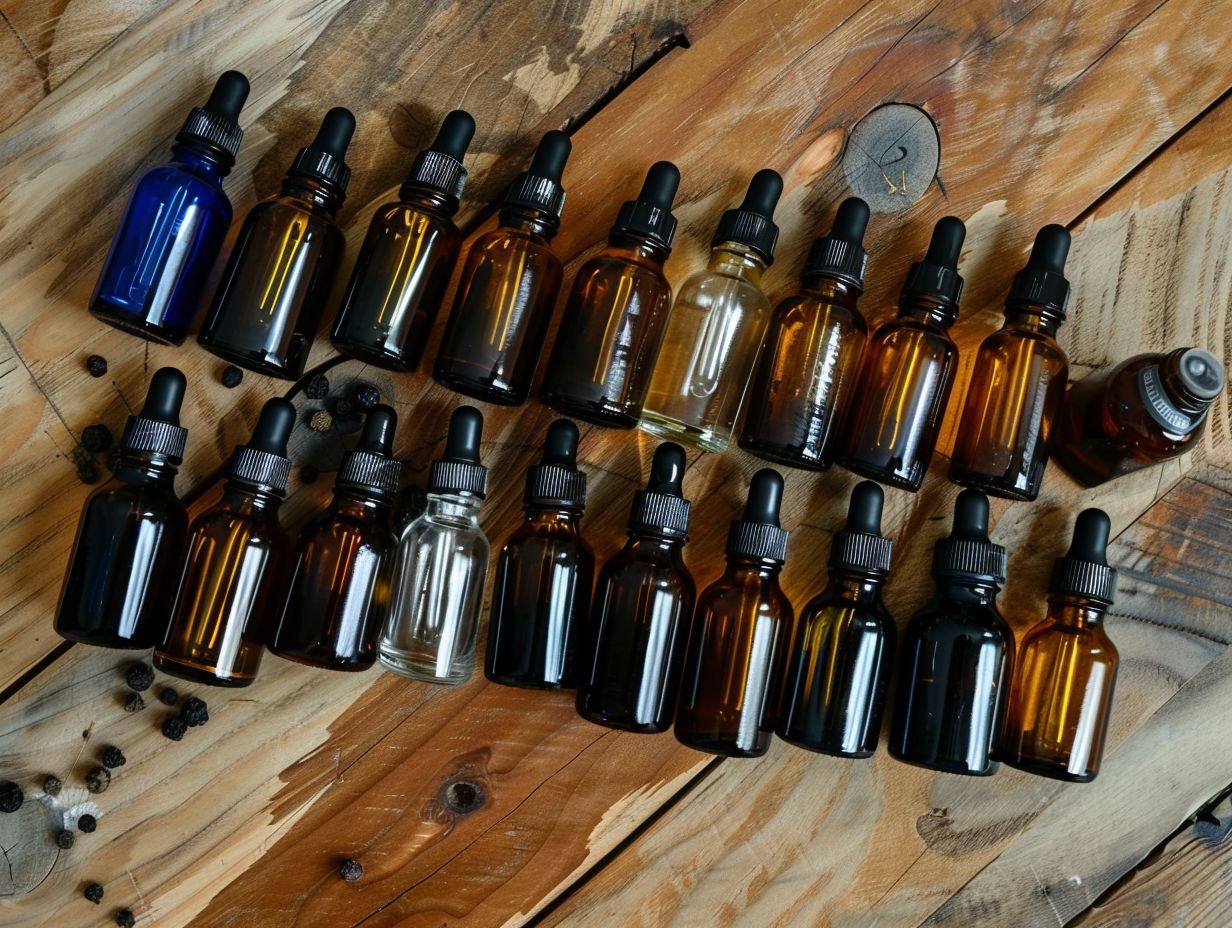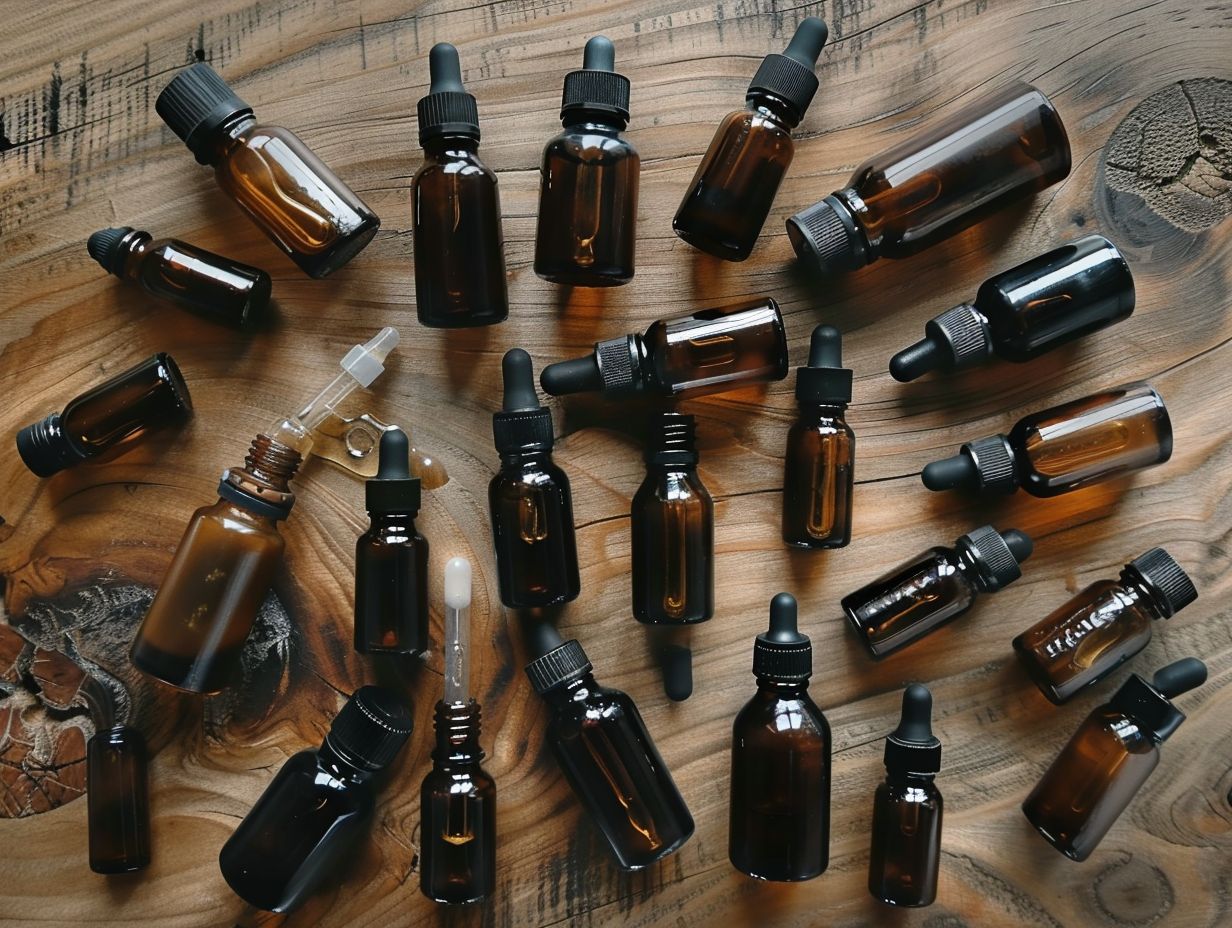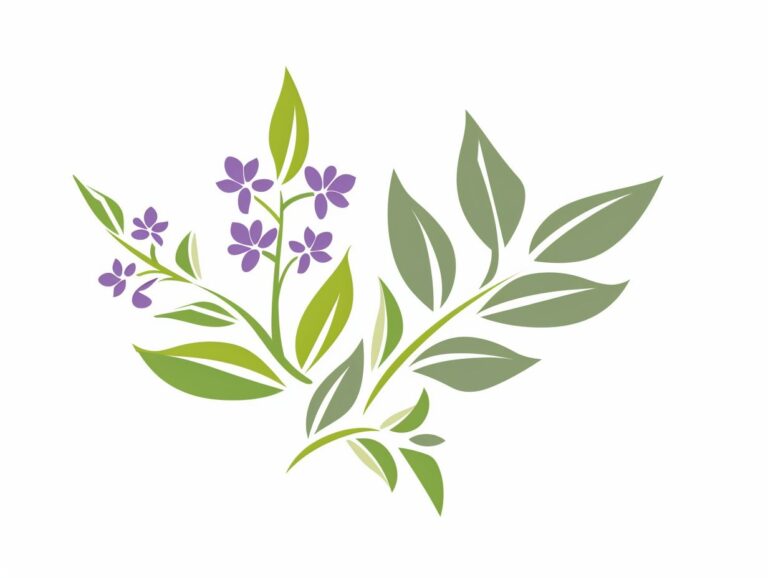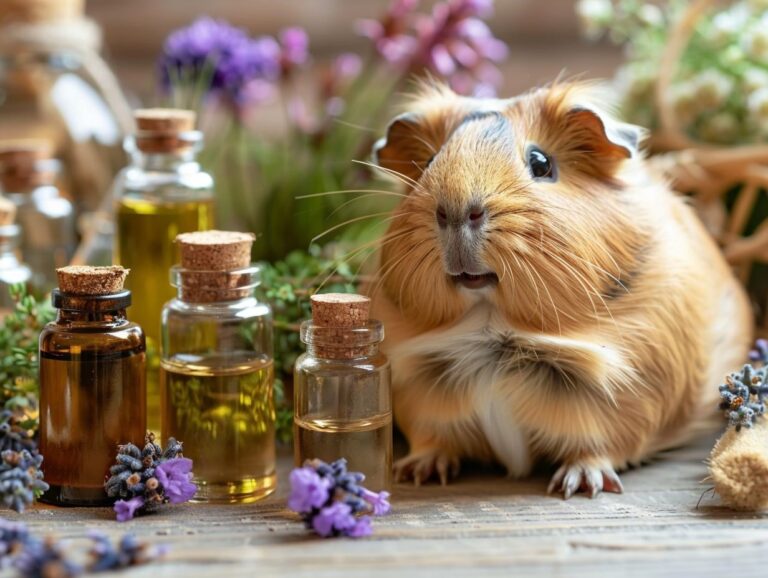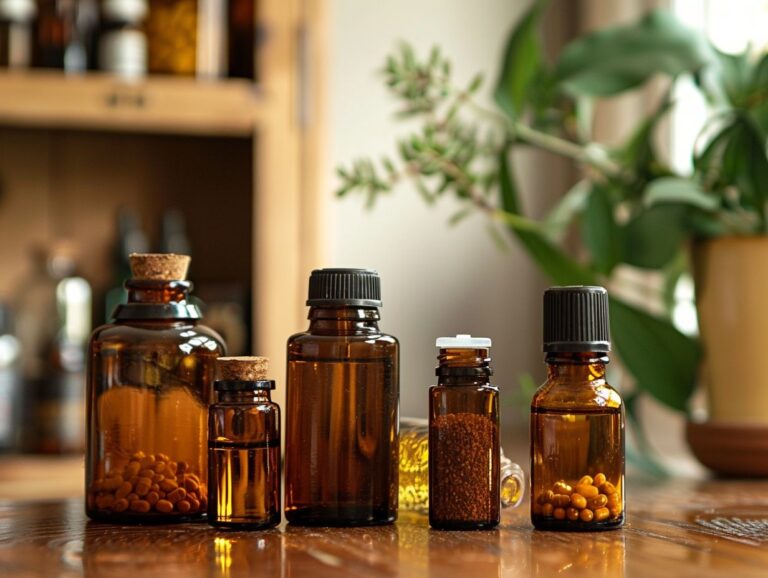Can I Mix Essential Oils Together for Hair Growth
Essential oils have gained popularity for their numerous benefits, including promoting hair growth.
We will explore the best essential oils for hair growth, such as lavender, rosemary, and peppermint oil. We will also discuss popular essential oil combinations, how to properly mix them, and potential side effects.
Learn how long it takes to see results, how often to apply essential oils, and if they can be used for all hair types. Find out more about using essential oils for healthy, luscious hair!
Key Takeaways:
What Are Essential Oils?
Essential oils are concentrated plant extracts containing aromatic compounds obtained from various parts of plants such as flowers, leaves, stems, roots, or fruits through methods like distillation or cold pressing.
One of the most popular essential oils is lavender, known for its calming and soothing properties. Derived from the lavender plant’s flowers, it is often used in aromatherapy to promote relaxation and improve sleep quality.
On the other hand, peppermint essential oil, extracted from peppermint leaves, is invigorating and refreshing, commonly used to boost energy and aid digestion.
Another versatile oil is rosemary, sourced from the rosemary plant’s stems and leaves, valued for its memory-enhancing and stimulating effects.
How Are Essential Oils Used for Hair Growth?
Essential oils are used for hair growth by applying them to the scalp through gentle massage to promote circulation, stimulate the hair follicles, and deliver natural nourishment to improve hair health and thickness.
Essential oils possess properties that can help combat issues like dryness, dandruff, and hair loss, making them a versatile solution for various hair concerns. The process of scalp massage with essential oils not only feels relaxing but also aids in reducing stress levels, which can contribute to healthier hair growth.
When essential oils are massaged into the scalp, they get absorbed by the skin, enabling their active compounds to penetrate deeply and work their magic on the hair follicles. The antifungal and antibacterial properties of certain essential oils also assist in maintaining a healthy scalp environment, paving the way for optimal hair growth.
What Are the Best Essential Oils for Hair Growth?
In terms of the best essential oils for hair growth, some popular choices include lavender oil, peppermint oil, rosemary oil, tea tree oil, cedarwood oil, thyme oil, and ylang ylang oil, each offering unique benefits for promoting healthy hair.
Peppermint oil is known for its cooling sensation and ability to improve blood circulation in the scalp, which can promote hair growth. Additionally, rosemary oil is excellent for strengthening hair follicles and reducing hair loss, making it a great choice for those struggling with thinning hair. Lavender oil not only has a calming aroma but also helps to moisturize the scalp and balance oil production, which can aid in maintaining a healthy scalp environment for hair to thrive. Each of these essential oils brings a unique set of properties that contribute to overall hair health and vitality.
Lavender Oil
Lavender oil is known for its hydrating properties that help nourish and strengthen the hair, making it a popular choice for promoting hair growth and combating dryness.
Rich in antioxidants and antimicrobial properties, lavender oil not only improves blood circulation to the scalp but also helps in maintaining the natural moisture balance, preventing issues like dandruff and itchiness. By penetrating deeply into the hair follicles, it revitalizes and strengthens them, thereby reducing hair breakage and promoting healthier, shinier locks. In addition, the soothing aroma of lavender oil can also provide a calming effect, reducing stress and tension, which are known contributors to hair loss.
Rosemary Oil
Rosemary oil is beneficial for hair growth as it improves blood circulation, reduces frizziness, and regulates sebum production on the scalp, contributing to healthier and stronger hair.
By enhancing scalp circulation, rosemary oil promotes the delivery of essential nutrients to the hair follicles, stimulating growth and preventing hair loss. Its ability to control sebum production helps in maintaining a balanced scalp environment, preventing greasiness and potential scalp issues.
The anti-inflammatory properties of rosemary oil aid in soothing the scalp, reducing itchiness and dandruff. This oil is also known for its refreshing scent, providing a relaxing and aromatherapeutic experience during hair care routines.
Peppermint Oil
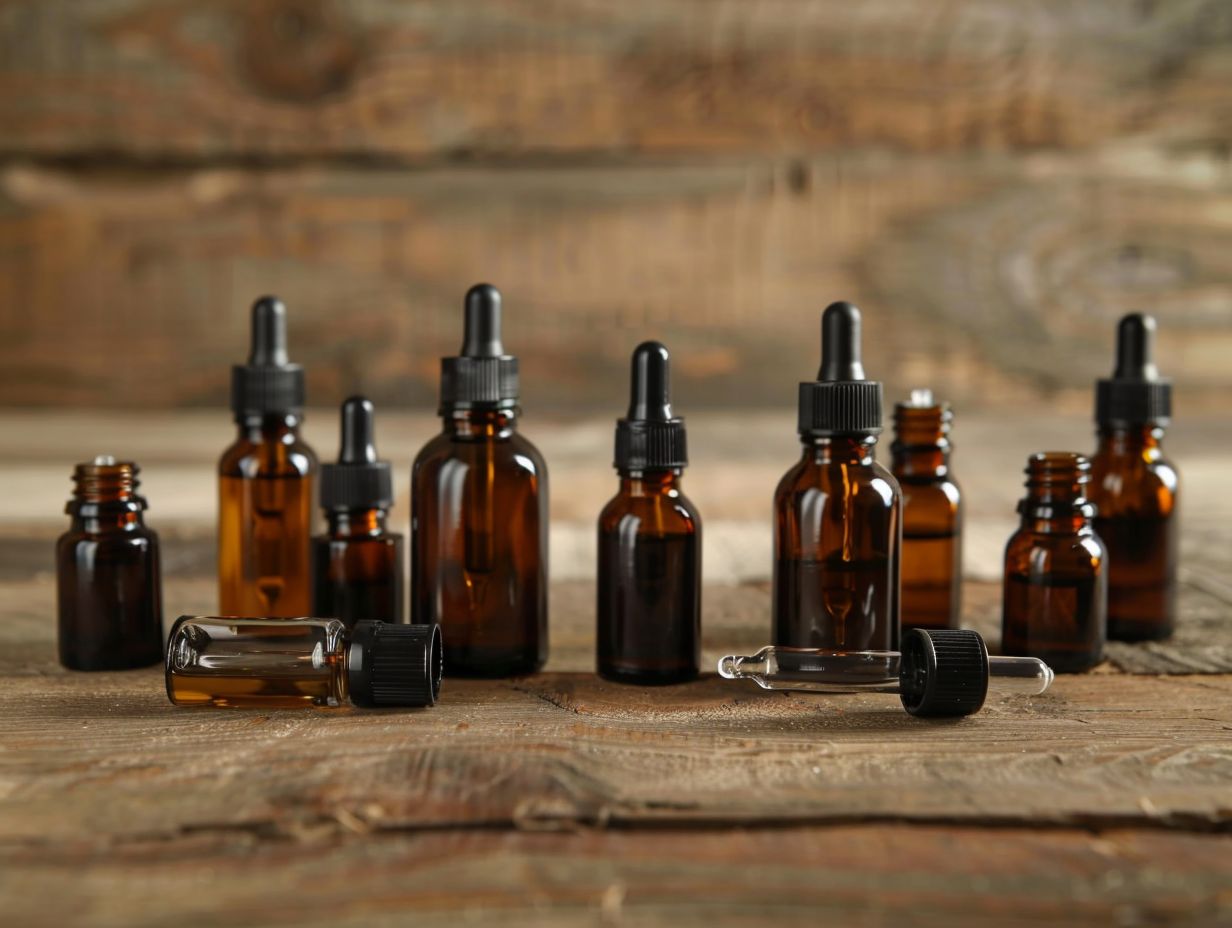
Peppermint oil is known for its stimulating properties that promote circulation, while also providing moisturizing benefits to the scalp, supporting hair growth and hydration.
This invigorating essential oil not only boosts blood flow to the hair follicles, but it also alleviates dryness, leaving the scalp hydrated and nourished. Peppermint oil imparts a cooling sensation, which not only feels refreshing but also helps in maintaining a healthy scalp environment conducive to hair growth. Its antimicrobial properties can assist in warding off scalp conditions, while the menthol content provides a tingling sensation that can enhance the overall health of your hair and scalp.
Can Essential Oils Be Mixed Together for Hair Growth?
Yes, essential oils can be blended together to create powerful mixtures that combine the benefits of different oils to target specific hair growth concerns and enhance overall effectiveness.
Blending essential oils offers a versatile approach to customizing hair care solutions for individual needs. By blending oils such as lavender, rosemary, cedarwood, and peppermint, you can stimulate hair follicles, improve scalp health, and promote hair growth. These customized oil blends not only provide nourishment but also offer a natural alternative to commercial hair products laden with chemicals. Crafting your unique oil mixture allows you to tailor the formula to address concerns like dry scalp, hair thinning, or lack of shine.
What Are Some Popular Essential Oil Combinations for Hair Growth?
Popular essential oil combinations for hair growth include blends of lavender, rosemary, and peppermint oils, known for their synergistic effects in promoting scalp health and encouraging hair growth.
These oils work together to stimulate blood circulation in the scalp, ensuring better nutrient delivery to hair follicles.
The calming properties of lavender oil soothe the scalp, reducing inflammation and dandruff, which can hinder hair growth.
Rosemary oil, with its antimicrobial properties, helps maintain a healthy scalp environment, preventing bacterial or fungal overgrowth.
Peppermint oil not only provides a refreshing sensation but also increases follicle depth, leading to stronger hair roots.
When combined, these oils create a powerful elixir that supports overall hair health and promotes lush, thick hair growth.
How to Properly Mix Essential Oils for Hair Growth?
To properly mix essential oils for hair growth, it’s essential to dilute them with a carrier oil to ensure safe application and effective absorption while following precise instructions to create a balanced blend.
When diluting essential oils with a carrier oil, the general guideline is to use a ratio of 2-3% essential oil to carrier oil for hair treatments, as a higher concentration may cause skin irritation. For example, if you are blending 30ml of carrier oil, you would typically add around 6-9 drops of essential oil.
Some popular carrier oils for hair growth include jojoba, coconut, argan, and castor oil, each offering unique benefits and nourishment to the scalp and hair.
Remember to consider the specific properties of each essential oil and carrier oil you are using to create a well-rounded blend that targets your desired hair goals. Experiment with different combinations and concentrations to find the perfect mix that suits your hair type and scalp condition.
By following these guidelines, you can harness the full potential of essential oils for promoting healthy hair growth naturally.
Are There Any Side Effects of Mixing Essential Oils for Hair Growth?
While essential oils can offer numerous benefits for hair growth, improper mixing or application methods may lead to potential side effects such as scalp irritation, allergic reactions, or adverse treatment outcomes that should be monitored and addressed.
It is crucial to be mindful of the dilution ratios when blending different essential oils for a hair growth regimen. Each essential oil has unique properties and potency levels that can cause adverse reactions if not diluted properly.
Conducting a patch test before applying any new essential oil blend to your scalp can help identify any potential sensitivities or allergies. This simple step can prevent skin irritation and other allergic responses that may arise from direct contact with concentrated oils.
If you experience any adverse reactions after using a mixed essential oil for hair growth, such as redness, itching, or inflammation, it is essential to discontinue use immediately and seek medical advice.
How Long Does It Take to See Results from Using Essential Oils for Hair Growth?
The timeline to observe results from using essential oils for hair growth can vary depending on individual factors, with some noticing improvements in hair regrowth and dandruff reduction within a few weeks, while others may require more extended treatment periods for significant changes.
Consistency in applying the essential oils is key to achieving desired outcomes. For those aiming for enhanced hair regrowth, regular use for a period of three to six months is often recommended.
- This extended commitment helps stimulate hair follicles and promote stronger, healthier hair growth.
- For individuals targeting dandruff reduction, effects can sometimes be observed within weeks of consistent application, but long-term use is advised for lasting results.
It’s crucial to understand that everyone’s hair reacts differently to treatments, so patience and persistence are vital for optimal results.
How Often Should Essential Oils Be Applied for Hair Growth?
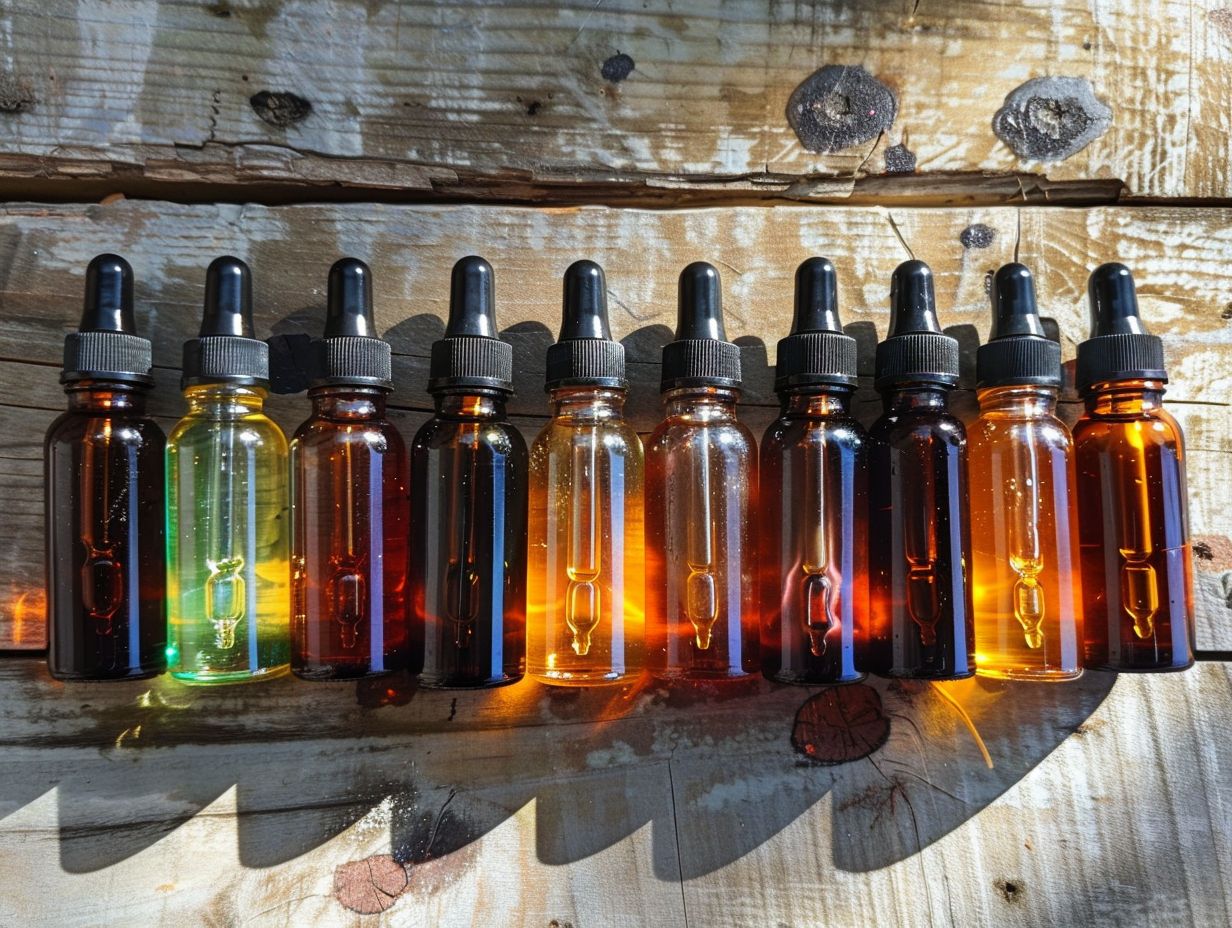
Consistency is key when using essential oils to boost hair growth. It’s important to make it a part of your routine to see tangible results. Regular application helps maintain the scalp’s health and provides the necessary nourishment for the hair follicles to thrive.
By incorporating essential oils into your weekly hair care regimen, you actively support the natural growth cycle of your hair. This targeted approach can address issues like hair thinning or slow growth effectively.
Can Essential Oils Be Used for All Hair Types?
Essential oils can be beneficial for all hair types, offering hydrating, conditioning, and antioxidant properties that cater to diverse hair care needs, from dry scalp issues to promoting shine and managing frizziness effectively.
Rich in vitamins, minerals, and other nourishing elements, essential oils like lavender, rosemary, and peppermint can deeply penetrate the hair follicles, strengthening them from within and improving overall hair health. For those with oily hair, tea tree oil’s natural astringent properties can help balance sebum production and keep the scalp clean. Conversely, for individuals with dry, brittle hair, the moisturizing effects of argan oil or coconut oil can provide the necessary hydration and restore luster.
Cedarwood Oil
Cedarwood oil is valued for its conditioning properties that help improve hair texture and manage frizziness, along with its antimicrobial properties that can benefit scalp health and promote hair growth.
In terms of hair texture, cedarwood oil is known to nourish and moisturize the hair, making it softer and more manageable. Its antimicrobial qualities help keep the scalp healthy, reducing the risk of infections and dandruff.
For those struggling with frizziness, cedarwood oil can act as a natural remedy by smoothing the hair cuticles and reducing static, resulting in smoother and more controlled hair strands. This can be particularly beneficial for individuals with curly or unruly hair.
The scalp health benefits of cedarwood oil extend beyond its antimicrobial properties. It can help stimulate blood circulation in the scalp, promoting hair growth by providing a nourishing environment for hair follicles to thrive. Regular use of cedarwood oil can lead to stronger, healthier hair with improved texture and shine.
Thyme Oil
Thyme oil offers antioxidant properties that protect the scalp and hair from damage while aiding in improving blood circulation, making it a valuable oil for promoting hair growth and maintaining scalp health.
Antioxidants in thyme oil help combat free radicals, protecting the scalp against environmental stressors that can hinder hair growth. This natural remedy also stimulates microcirculation in the scalp, ensuring that essential nutrients reach the hair follicles efficiently.
By promoting blood flow to the hair follicles, thyme oil supports the delivery of oxygen and nutrients necessary for healthy hair development. This improved circulation can contribute to stronger, shinier hair, while minimizing issues like dandruff and dryness.
Clary Sage Oil
Clary sage oil is known for its ability to regulate sebum production on the scalp, providing a nourishing environment that supports healthy hair growth and helps in managing oil levels for balanced hair health.
When sebum production is properly balanced, it prevents the scalp from becoming too dry or too oily, which can both lead to hair issues. Clary sage oil effectively nourishes the scalp, ensuring it remains hydrated without being greasy. This, in turn, creates an optimal environment for hair follicles to thrive and produce strong, vibrant hair.
Ylang Ylang Oil
Ylang ylang oil offers hydration that helps in preventing split ends and enhancing hair texture, making it a beneficial oil for promoting hair growth and supporting overall hair health.
Ylang ylang oil contains properties that deeply penetrate the hair shaft, providing much-needed hydration to combat dryness and brittleness, which are common culprits of split ends. The moisturizing nature of this oil not only helps in preventing future split ends but also aids in repairing existing damage, leading to smoother, healthier-looking hair.
By nourishing the scalp, ylang ylang oil promotes a healthy environment for hair follicles to thrive, thereby stimulating hair growth and improving overall hair quality. Its soothing and balancing effects on the scalp can also help reduce issues like dandruff and itchiness, creating a better foundation for strong and lustrous hair.
Frequently Asked Questions
Can I Mix Essential Oils Together for Hair Growth?
Yes, you can mix essential oils together for hair growth. In fact, combining different oils can be more effective in promoting hair growth compared to using just one type of oil.
Which Essential Oils are Best for Hair Growth?
Some of the best essential oils for hair growth include rosemary, peppermint, lavender, and cedarwood. These oils have been proven to stimulate hair follicles and promote hair growth.
How Should I Mix Essential Oils for Hair Growth?
The best way to mix essential oils for hair growth is to dilute them in a carrier oil such as coconut or jojoba oil. A general rule is to use 12 drops of essential oil per ounce of carrier oil.
Are There Any Essential Oils That Should Not be Mixed Together for Hair Growth?
Yes, some essential oils may not mix well together and may cause adverse reactions. These oils include cinnamon, clove, and oregano. It is best to consult a professional aromatherapist before combining oils for hair growth.
How Often Should I Use Essential Oils for Hair Growth?
It is recommended to use essential oils for hair growth 2-3 times a week. This will give your scalp enough time to absorb the oils and promote hair growth without over-saturating it.
Can I Use Essential Oils for Hair Growth on All Hair Types?
Yes, essential oils can be used for hair growth on all hair types. However, some oils may be more suitable for certain hair types. For example, thicker oils like castor oil may be better for coarse, curly hair while lighter oils like jojoba may be better for fine hair.

